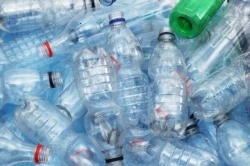- Home
- Tutorial
- Resource Guides
- Focus Areas
- LSF Programs
-
Professional
Development - Review Process
-
A project of LSF

Search for Resources
Description
The three characters in this animated film embark on very different journeys after they are discarded by humans. Bottle one falls into a toxic dump from which he will not escape for hundreds of years. Bottle two travels to the beautiful Pacific ocean, only to become caught in a huge garbage whirlpool where he could harm the sea creatures he saw along the way. Only bottle three has a truly remarkable trip where he is transformed into a brand new object destined for more adventures. This video and complimentary activity teaches students that in today's plastic world we must all do our part to protect the soils, water and biodiversity that makes Earth so special.
General Assessment
Recommendation of how and where to use it
This resource supports Science curriculum exploring pollution effects on ecosystems, biodiversity and ocean problems like the bioaccumulation of micro-plastics. Pupils also learn how plastic is manufactured from petroleum products which supports discussions about Earth's non-renewable resources and sustainability.
The video highlights how many recyclable items are improperly discarded and end up in landfills. This information could form the basis of an action project in which a class conducts a school waste audit to determine the amount of items that end up in the wrong bins. A subsequent education campaign could inform peers and teachers about correct recycling techniques and create awareness about environmental issues associated with single use plastics.
Relevant Curriculum Units
The following tool will allow you to explore the relevant curriculum matches for this resource. To start, select a province listed below.
- Step 1Select a province
- Alberta
- Step 2Select a grade level
- Grade 4
- Step 3Select a subject
- Science
- Step 4Relevant matches
- Matter and Energy Understandings of the physical world are deepened by investigating matter and energy.
- Grade 7
- Step 3Select a subject
- Science
- Step 4Relevant matches
- Interactions and Ecosystems
- Grade 8
- Step 3Select a subject
- Science
- Step 4Relevant matches
- Freshwater and Saltwater Systems
- British Columbia
- Manitoba
- New Brunswick
- Step 2Select a grade level
- Grade 4
- Step 3Select a subject
- Science
- Step 4Relevant matches
- Properties and Uses of Earth Materials: Learning and Living Sustainably
- Properties and Uses of Earth Materials: Scientific Literacy
- Grade 9
- Step 3Select a subject
- Science
- Step 4Relevant matches
- Science 9 Ecosystem Dynamics: Learning and Living Sustainably
- Newfoundland & Labrador
- Step 2Select a grade level
- Grade 5
- Step 3Select a subject
- Science
- Step 4Relevant matches
- Properties & Changes in Materials
- Grade 7
- Step 3Select a subject
- Science
- Step 4Relevant matches
- Interaction of Ecosystems
- Grade 8
- Step 3Select a subject
- Science
- Step 4Relevant matches
- Water Systems on Earth's Surface
- Northwest Territories
- Nova Scotia
- Nunavut
- Step 2Select a grade level
- Grade 5
- Step 3Select a subject
- Science
- Step 4Relevant matches
- Matter and Materials: Properties of and Changes in Matter
- Grade 7
- Step 3Select a subject
- Science
- Step 4Relevant matches
- Interactions and Ecosystems
- Grade 8
- Step 3Select a subject
- Science
- Step 4Relevant matches
- Freshwater and Saltwater Systems
- Ontario
- Step 2Select a grade level
- Grade 4
- Step 3Select a subject
- Science & Technology
- Step 4Relevant matches
- Earth and Space Systems: Rocks, Minerals, and Geological Processes
- Grade 5
- Step 3Select a subject
- Science & Technology
- Step 4Relevant matches
- Earth and Space Systems: Conservation of Energy & Resources
- Grade 6
- Step 3Select a subject
- Science & Technology
- Step 4Relevant matches
- Life Systems: Biodiversity
- Grade 7
- Step 3Select a subject
- Science & Technology
- Step 4Relevant matches
- Life Systems: Interactions in the Environment
- Prince Edward Island
- Step 2Select a grade level
- Grade 5
- Step 3Select a subject
- Science
- Step 4Relevant matches
- Properties and Changes in Materials
- Grade 7
- Step 3Select a subject
- Science
- Step 4Relevant matches
- Interactions Within Ecosystems
- Grade 8
- Step 3Select a subject
- Science
- Step 4Relevant matches
- Water Systems on Earth
- Quebec
- Step 2Select a grade level
- Grade 4
- Step 3Select a subject
- Science & Technology
- Step 4Relevant matches
- Living Things
- Grade 5
- Step 3Select a subject
- Science & Technology
- Step 4Relevant matches
- Living Things
- Grade 6
- Step 3Select a subject
- Science & Technology
- Step 4Relevant matches
- Living Things
- Saskatchewan
- Step 2Select a grade level
- Grade 5
- Step 3Select a subject
- Science
- Step 4Relevant matches
- Properties and Changes of Materials
- Grade 7
- Step 3Select a subject
- Science
- Step 4Relevant matches
- Science 7: Earth and Space Science: Earth’s Crust and Resources
- Science 7: Life Science: Interactions within Ecosystems
- Grade 8
- Step 3Select a subject
- Science
- Step 4Relevant matches
- Science 8: Water Systems on Earth
- Yukon Territory
Themes Addressed
Citizenship (1)
- Sustainable Consumption
Waste Management (1)
- Rethink, Reduce, Reuse, Recycle

